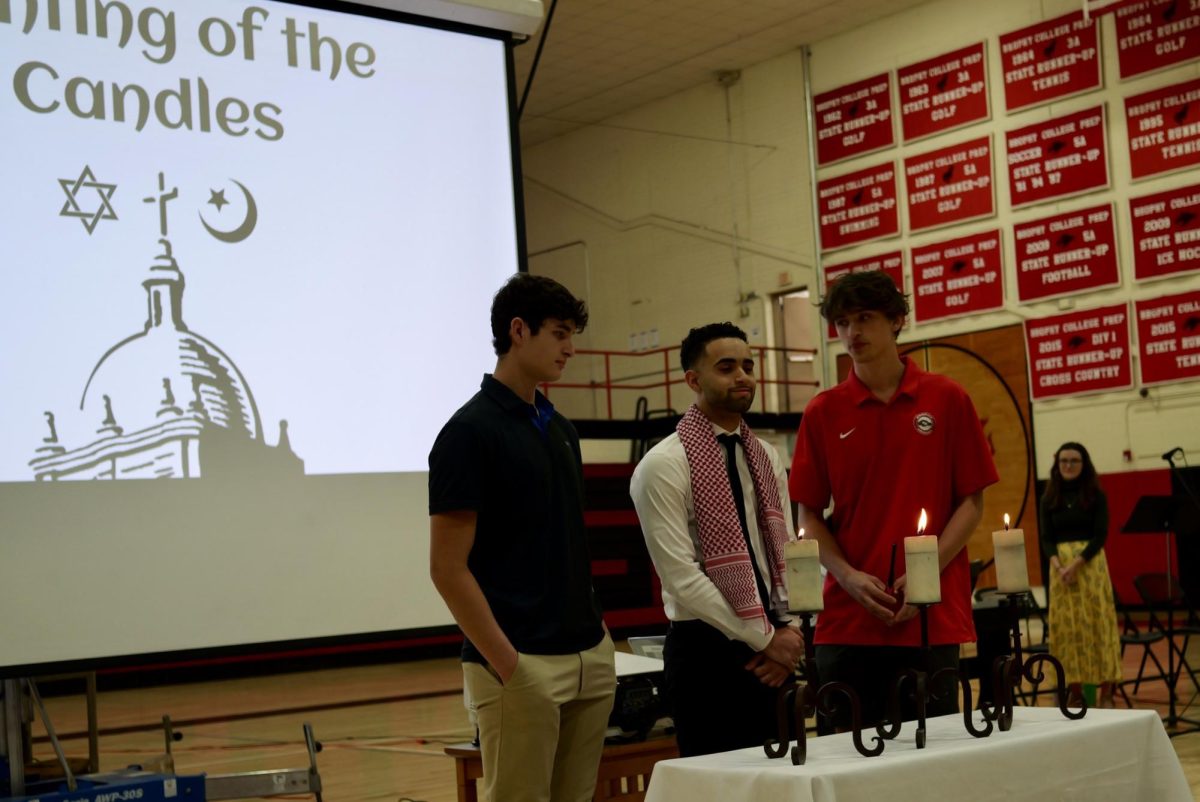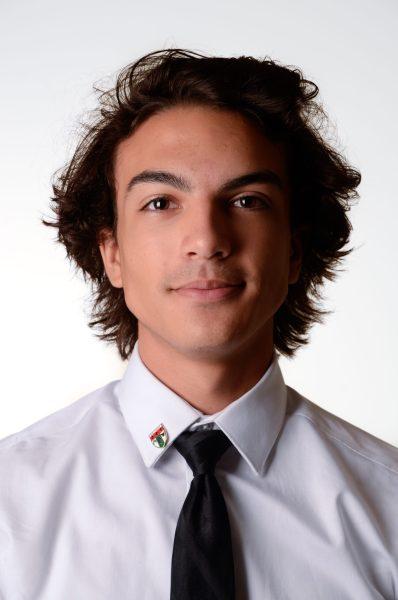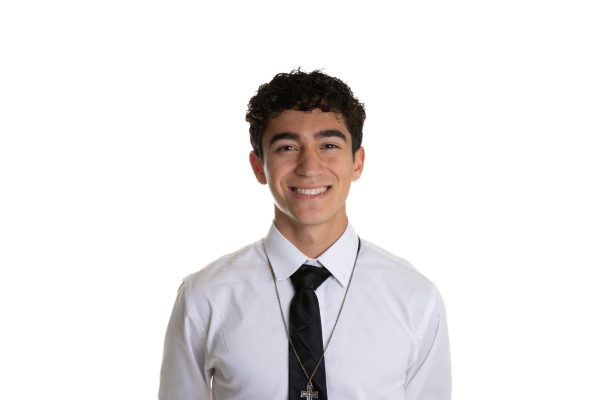Last October, in the wake of the burgeoning Israel-Hamas War, I began reporting on its impact felt within the Brophy community. But this reporting, due to intense internal discussions about issues of sensitivity and justice as well as pressure from Roundup advisor Mr. Jake Kelly ’09, never lived to see publication.
In the months since my original article was prepared, the war has grown into an entirely new dispute. Civilian deaths in Gaza have totaled over 30,000, 113 Israeli hostages still remain in captivity, and foreign sentiment, including from President Biden, has swayed.
I’ve heard the morning prayers imploring for a ceasefire and Pope Francis calling for peace to be resolved “through sincere and preserving dialogue between the parties, sustained by strong political will and the support of the international community.” But I’m worried, as dejecting headlines continue to roll in and the death toll slowly rises, that I haven’t seen us truly embody these sentiments.
Preserving dialogue seems like the least we could do given our stance as largely privileged students at a private school who reside 7,000 miles from the Holy Land. But out of fear, many of Brophy’s voices – on social media, during the prayer service, and in our newspaper – choose silence.
Silence should never be an option for people representing an institution that prides itself on being “committed to doing justice.” Justice is neither easy nor comfortable, but rather a plight to uplift those who have been oppressed by evil. It requires all of us at Brophy to take the extra step – by paying attention to the news, asking questions in the classroom and seeking understanding rather than victory. In whatever you choose to do, carry out this call for peace.
The Israelis who were kidnapped and forced to flee their homes by Hamas terrorists. The Palestinian civilians killed and left without basic humanitarian needs. These are the people hurt by our silence.
But silence is better than ignorance. If we as young men aspire to take part in conversations with such gravity and influence, then we must first educate ourselves on the depth of the issue. Education is the backbone to any hope of understanding, a value whose utmost importance to discourse about the conflict is unanimously agreed upon.
Brophy’s Jewish Student Union President Eli Feldman ’25 has noted how knowledge on this topic equates to power. In the same regard, Zeid Arekat ’24, president of Brophy’s Muslim Student Union, said “if we can educate our peers, then we’re doing what we can to promote peace.”
The current conflict in the Holy Land is nothing new, but yet another manifestation of tensions that have existed since 1948. In the lineage of this problem, our generation will soon be called to be the moderators of these discussions, and therefore it’s an inherent responsibility for us to become literate on this issue.
In the spirit of reinvigorating these productive conversations, I wanted to shed light on some of the positive sentiments that I found in my reporting from last fall. Although these themes of hope and reconciliation are often overshadowed by the horrors of war that flood our newsfeeds, there ultimately does exist a light at the end of the tunnel.
“Like a great Jewish sage once put it, ‘a little bit of light expels a lot of darkness. I think that by igniting light of good deeds, we expel this darkness on a spiritual level,” Rabbi Pinchais Allouche, a deeply respected leader in the Jewish community of Arizona and founding Rabbi of Congregation Beth Tefillah, said. “I really believe that any type of change starts with the micro not with the macro. I’ve come to realize now in my 25 years as a Rabbi, that variable change begins with just one person.”















